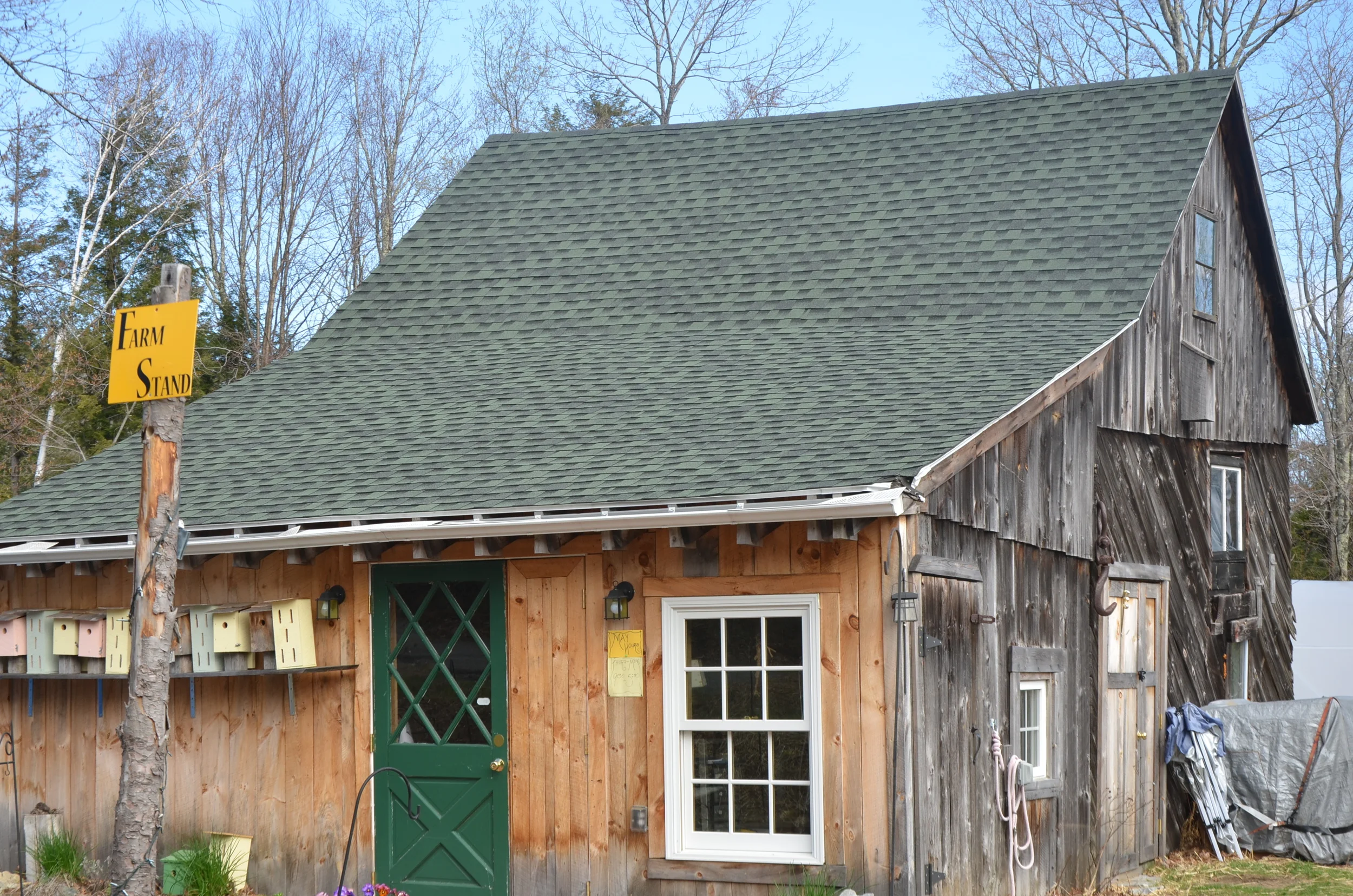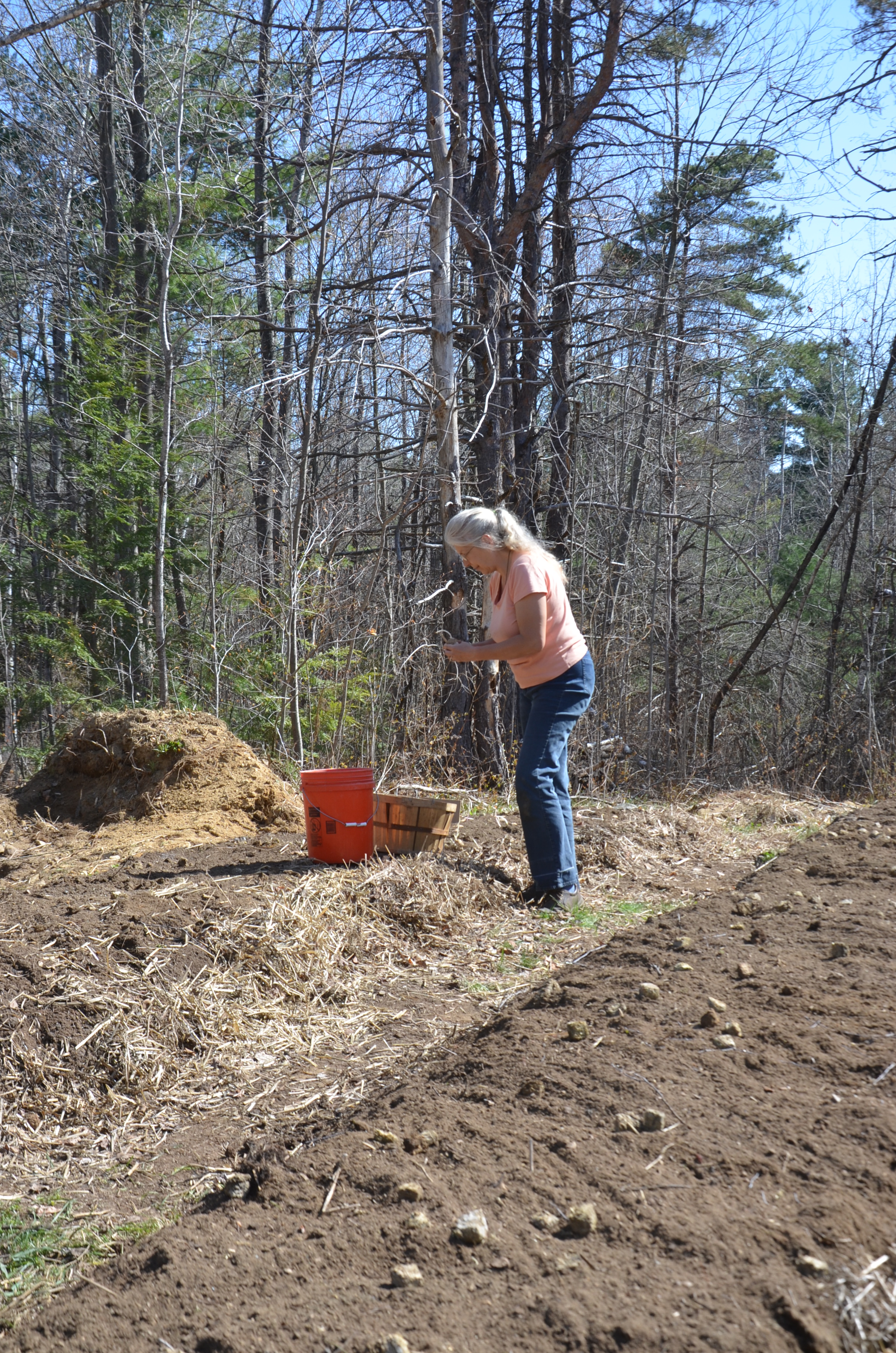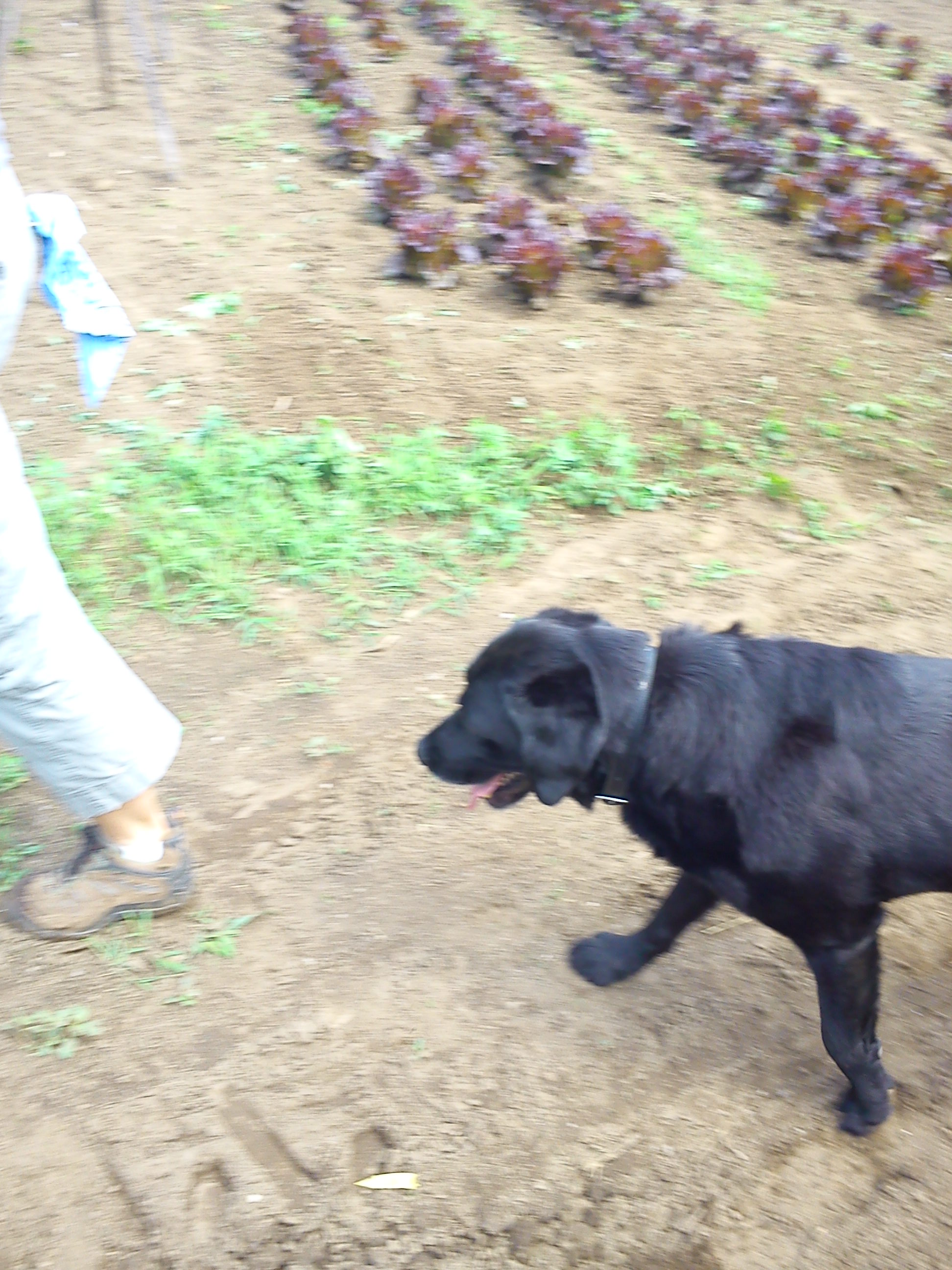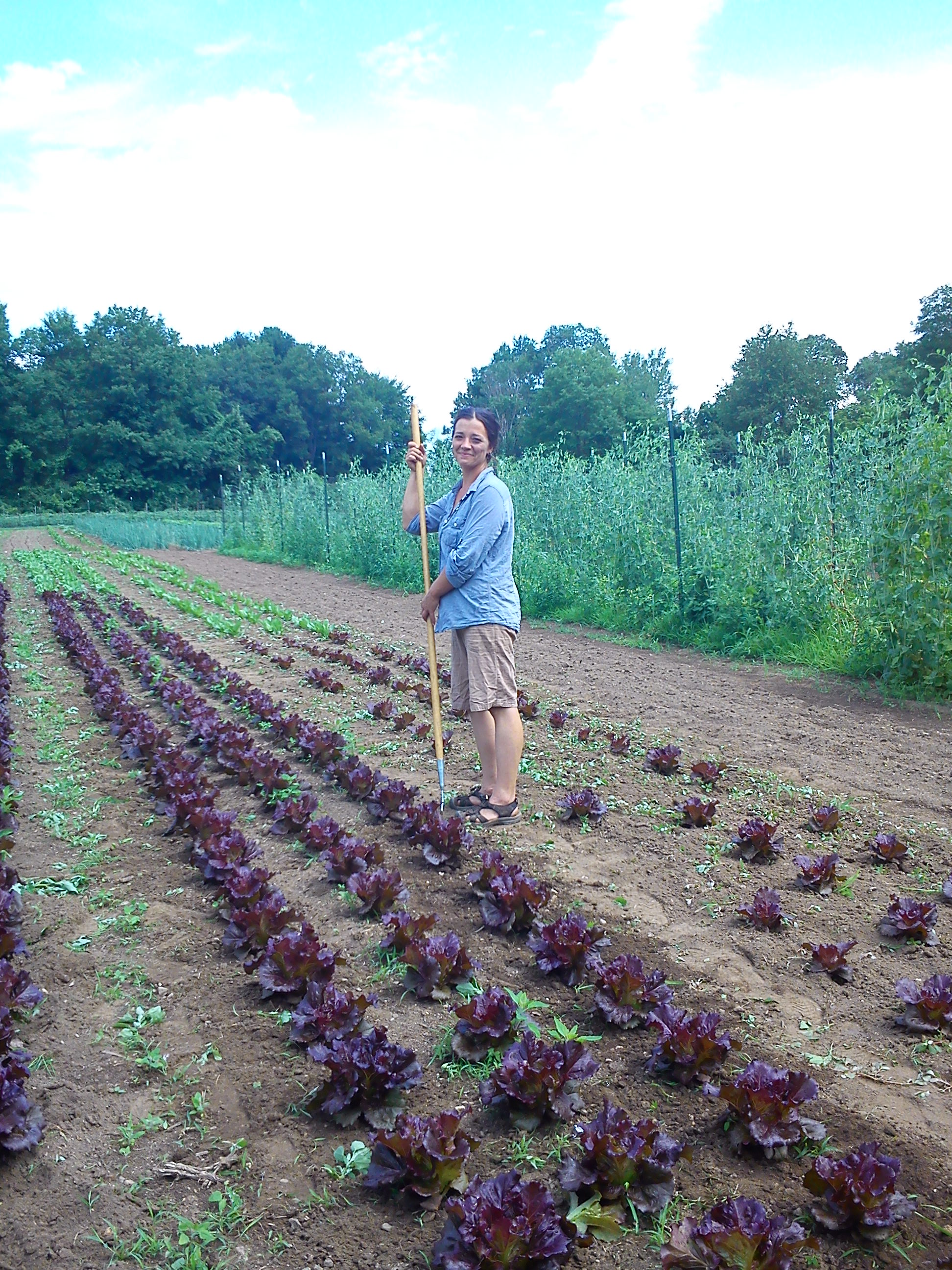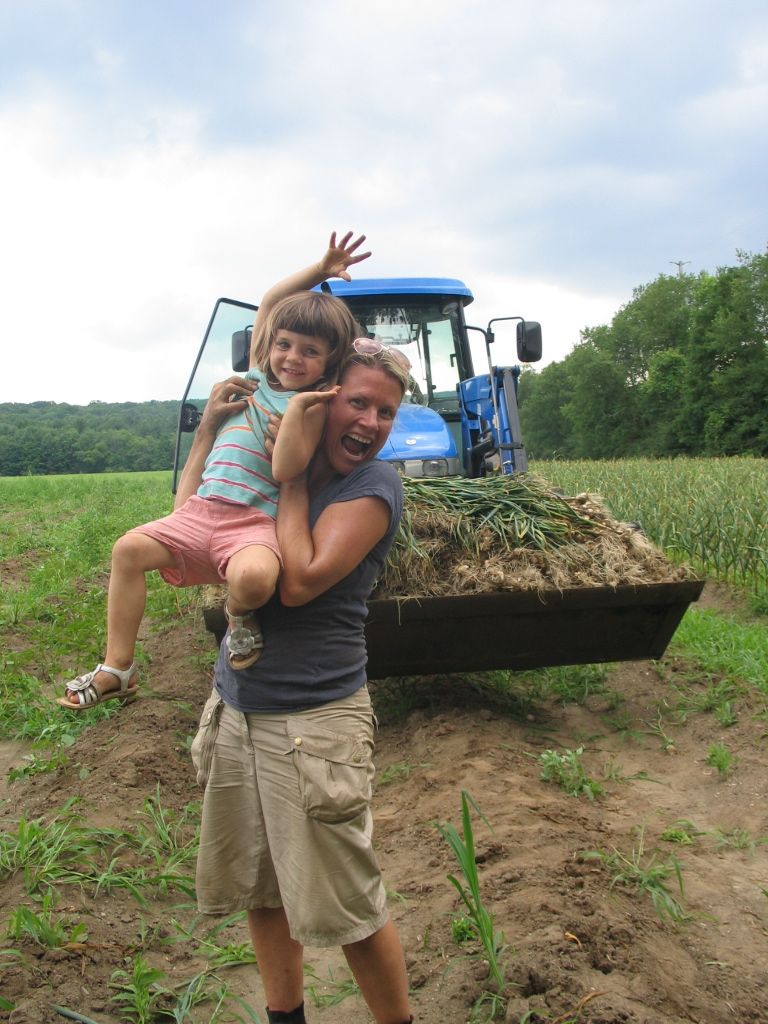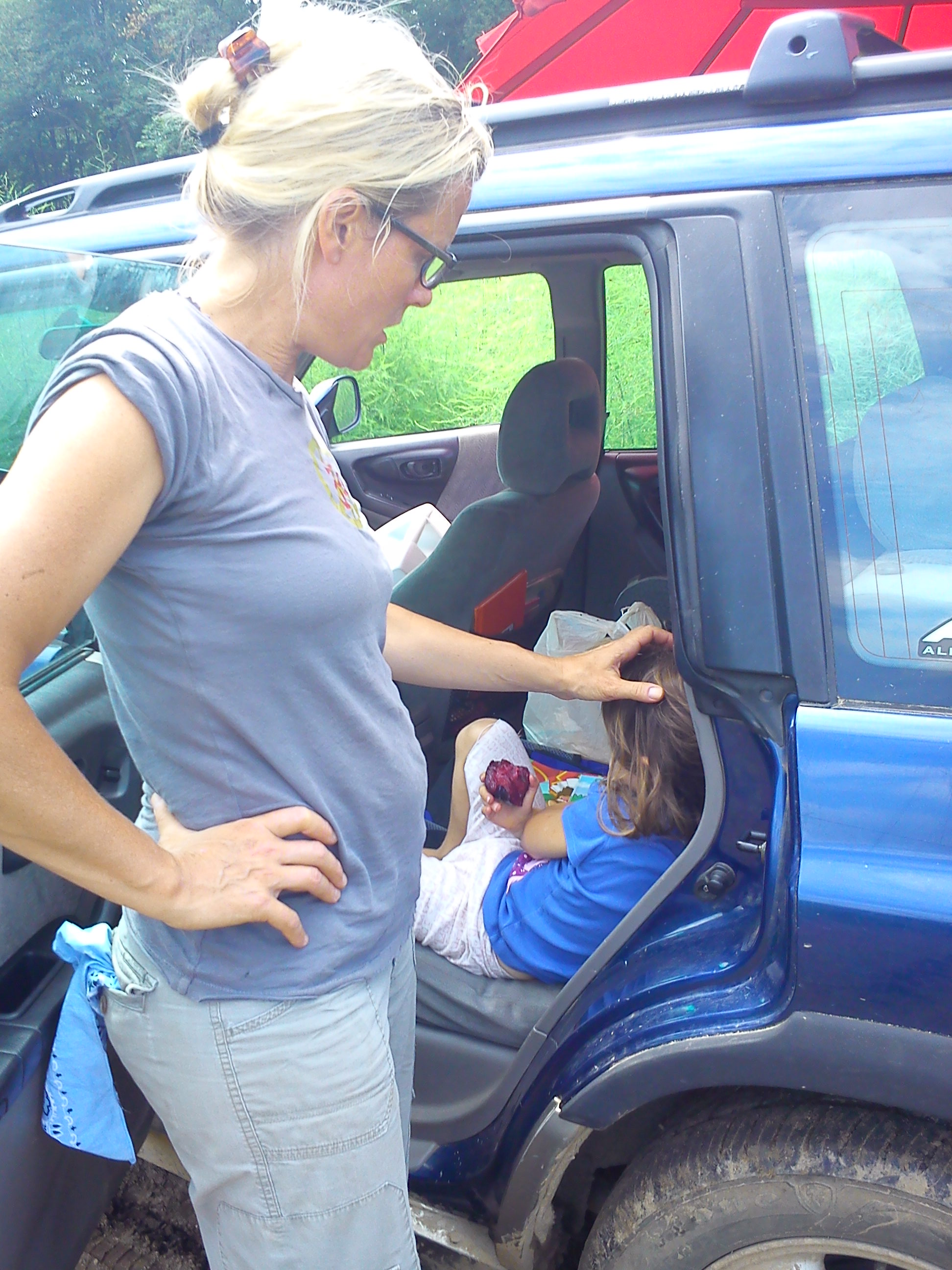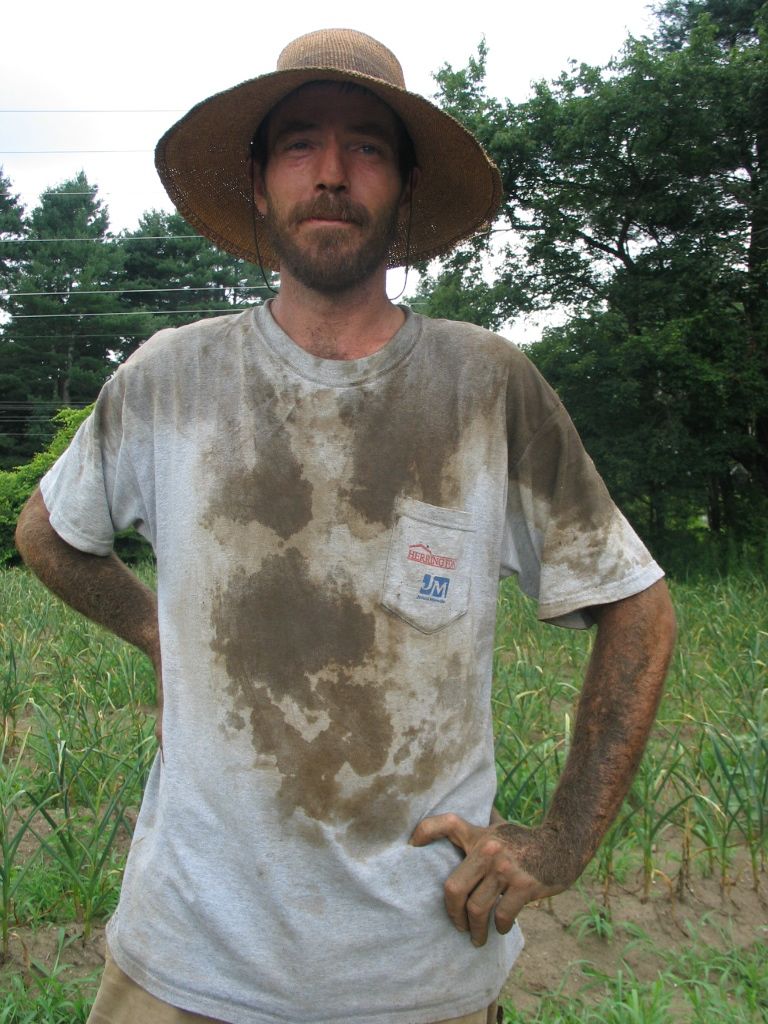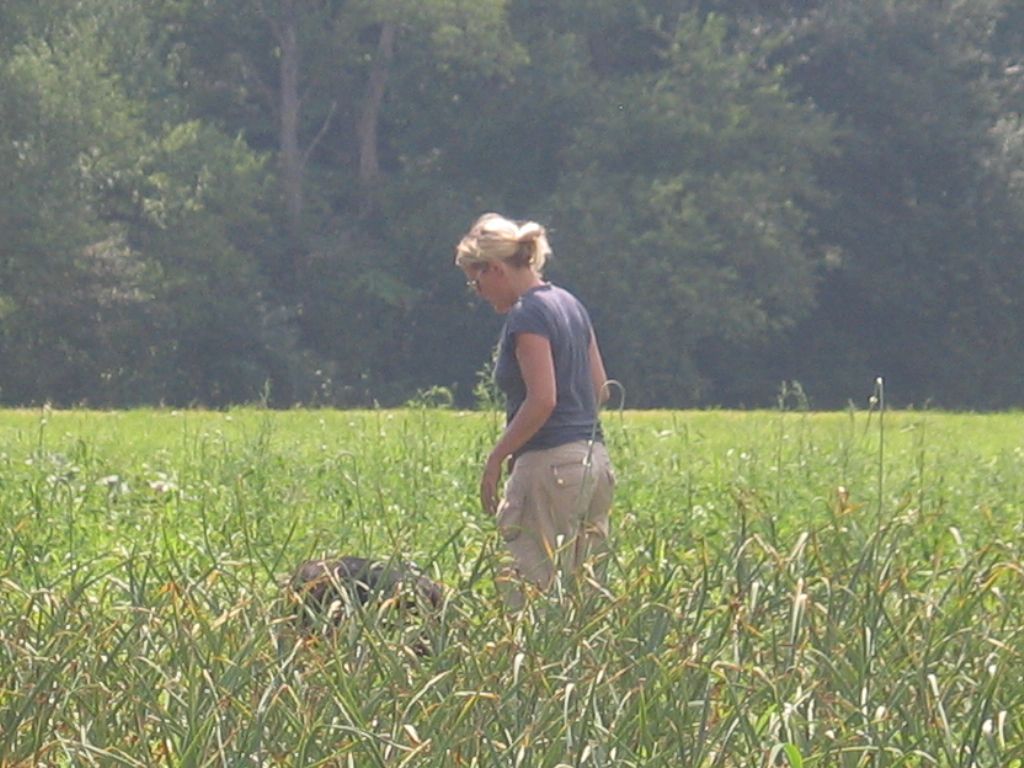The glorious season of fresh farm food hit the ground running in early May and I was excited to help my friend’s mother, Adrienne Metcalf, at Peace Haven Farm in Becket, MA. I couldn't wait to get ‘up there’ and away from it all for three days. I arrived and spilled out of my car and into Mother Nature’s lap.
Adrienne and I had never met before and as she came over to greet me, I anxiously explained, ”I…I had to bring my dog…she’s…she’s not doing too well…” In an instant, I was in floods of tears. Over the past months, I have been watching my much beloved dog journey between Last Rights and miraculous bounce backs. At the same time, I am witnessing my mother recede into the mist of Alzheimer’s. Both form a complex, painful juxtaposition.
It’s no wonder then that when I set eyes on Adrienne, I saw the physical embodiment of Mother Earth – tall, statuesque, sagacious and kind - and who better to cry to than a goddess?
Adrienne expertly settled my nerves. She, too, had been through this before with her dogs and for precisely the same reason I was crying in her garden would no longer be falling in love with a dog. Tears over, we both agreed that there’s nothing better to mend a broken heart than gardening and with that, we set to work.
Consistently warm weather had finally arrived. We opened up the greenhouse slats, raised the plastic side walls and switched out the winter hose for the summer one. All the while, Adrienne walked and talked me through the farm, explaining the tasks for the day. She is an excellent teacher. For every action there is a reaction and there is no better place to see this at work than in her garden.
Adrienne is a proficient autodidact who devoured Eliot Coleman’s teachings and applied them throughout the farm. She and I are both humbled and awed by Coleman but for slightly different reasons. As a self-sustaining organic farmer, Adrienne has learned valuable methods from him. As for me, I did not learn about Coleman until I was an adult, a by-product of generations that had overlooked Eliot and had cast him as a hippy demon and denounced his prescient vision and practices as those of a renegade “Pinko.” I am sad for the time lost, that we are only just waking up as a nation to his profound contribution.
Our big project over the course of three days would be a slight departure from the teachings of Eliot Coleman as we prepared Hugel beds. Pronounced “HOO-gul,” Hugelkultur is a permaculture practice that uses woody debris including branches, twigs, and hard wood logs as a resource, rather than burning them or removing them. When you see the beds for the first time, they resemble ancient burial mounds, complete with ‘sacrificial’ hard wood logs and slash in a ditch below that feed the plants above; act as sponges to conserve water; and make room for air as they decompose. As we weeded the beds, we replanted clover along the sides of the Hugel beds. Clover roots are topped with nodules of bacteria that work with nitrogen and hydrogen to form ammonia and nitrates. What is not used by the plant remains to enrich the soil.
We then carted aged horse manure and dumped it on to a Push-me-Pull-me. There was a whole lot of shaking going on as we ‘sifted shit,’ a metaphor that was not lost on me as I reflected on my own life and the shaking required to work through it to find what is most nourishing. Shit happens to all of us. What is surprising to me now at nearly 50 is the force at which the sadder memories – the shitty years - have resurfaced. Oddly enough, they've come at time when I've been feeling pretty darned good, having made tremendous progress working through challenging health issues. I had not invited those dark memories back into my life, yet there they were banging on the door to my psyche at a most inconvenient time, demanding to be heard. Had they not seen the GO AWAY mat on my doorstep, the one woven in threads of Denial and Hope?
Until recently I truly believed that I had processed "dark matters" years ago and that I had put them to rest. Newsflash: I had processed them as best I could years ago. As a teenager and young adult, my best coping skill was to accept what I cannot change and move on with my life. Simply put, I buried things and with that, the darkness covered the light, layer upon layer for many, many years.
Like plants in the garden, dormant emotions inevitably burst from deep within us all. It is at this point where I find myself a teenager again - frightened, overwhelmed and alone. The force of the flood of returning emotions has left me breathless for emotional resolution.
Beauties. My friend Rebecca with her Mum Adrienne c. 1984
There is a reason I landed in Adrienne’s garden and unfolded with a broken heart the week before Mother’s Day. I needed some mother-love and the universe delivered. I love how that works. Ask and ye shall receive.
Adrienne has a special way about her. She is an old soul with a young heart, an adventurer, and one who has lived life fully. Adrienne is as grounded as she is part of the ethereal beauty that becomes her. She’s switched-on, plugged-in to the earth, and tuned-in to a higher being. If Compassion could be detected on a Geiger counter, then she’d be off the charts.
Adrienne inherited the property that has become Peace Haven Farm from her father Paul C. Metcalf, a “Yankee” writer who had very close ties to Black Mountain College near Ashville, North Carolina during the 1950's and 60's. The college emphasized that learning and living are intimately connected. Both faculty and students participated in work on the college farm, constructed buildings, did maintenance work, and served meals. All classes focused on fine arts, music and drama and were scheduled at night to allow time for work on the campus during the day.
With an early childhood in a setting like that, it doesn't surprise me that Adrienne is now farming and baking beautiful and healthy things and that the house she shares with her husband Josh is brightly painted on the inside and a modest brown on the outside. Like book ends to Adrienne's life, there are similarities between her father's choice of work and what Elliot Coleman was trying to accomplish through Homesteading in Maine.
Adrienne’s mother, a southern belle, and her father eventually settled in Becket, MA, not far from where Adrienne's father's great-grandfather, Herman Melville, called home - Arrowhead in Pittsfield. It was Adrienne’s grandmother who discovered the Billy Budd manuscript in a bread box in the attic. From there on, the self-deprecating family joke was always “you’re never fully appreciated until you’re dead”. Like books, gardens live on for future generations to discover and to steward.
I am not a gardener and what I am about to write probably comes across as old news to those readers who are gardeners … it quickly dawned on me that the garden is about the best place to think, and reflect upon life. There is a physical and metaphysical flow that gives purpose to the work as each labor emulsifies the proverbial darkness. As we tend the garden with our hands deep in rich soil, our pain, loss, and sorrow break down and allow for light to come in and fill the cracks, like water sinking through soil, harvesting Gratitude instead of Fear. I am reminded of the quote:
Help us to be ever faithful gardeners of the spirit, who know that without darkness nothing comes to birth, and without light nothing flowers. ~ May Sarton
Peace, Love and Adrienne in her garden
There is an unspoken rhythm to the garden as words flow and spirits are fed by a conversation that transcends Time and our Life to-do’s. Adrienne and I wore no watches and as our days together ticked by, the “real-world” slipped away, leaving us closer to our senses and freeing us from the noise of every day. This is a sacred time with Nature, a time when real magic happens, a time when we are able to lose ourselves to the rhythm of planting, dropping a seed, visualizing its root - a shared meditation as the warmth and sunlight find their place in the earth, and in our hearts and in our minds.
We are all broken in parts and could choose to spend hours on a therapist’s sofa; or pop pills to make us happy; or bury things so deeply that we no longer care to feel. Or we could choose to do something very uncomfortable: confront our fears, dash them, and then let them go. It is one thing to allow our pain to break through, but it is quite another to recognize that as adults we are fortified with more tools in a tool box borne of life experiences. We can choose to look the dragon in the eye. We can find the courage to venture deep into the belly of the whale and in the end, the beast that is our own darkness can be felled, but not without a painful journey. It is not unlike the tremendous strength required for a bulb to push up from the darkness to reveal its tender bud.
Adrienne's outlook aligns personal spiritual growth with advancing global awareness and a shift that is bridging the individual with the global community. "In this world of deep polarities isn't that what we're all being asked to do - to take a second look, to make a better choice, to use all the false and bad starts, the pain and the mistakes as manure to grow a better garden? Yes, I'm onto the global social situation because what is the difference between the macro and our personal micro?"
I've added her words to my tool box and know that when unwanted feelings come rushing from out of the darkness and are banging at the door, I can take great comfort and look upon it as a second chance, a glorious opportunity to free myself from the past, and I can let go of the weight of its darkness. “Go on, open the door,” I say to myself as I invite Pain in and put the kettle on. “It’s time for a long overdue chat.”
As the first hummingbird flies inside the greenhouse at Peace Haven Farm and Adrienne cries “Joy!”, a new light enters after a long winter. I feel it tickle my dendrites, like roots to a plant and I know that I am in the right place, for the right reason and bang on time.
_________________________________________________________
Sometimes you just have to invite the darkness in to let the light shine. Go, Good Girl Go!
Peace Haven Farm Stand is open year round – 509 Quarry Road Becket MA 01223. Call for shop hours or to sign up for their weekly emails: [413] 623.5208
For more information on Elliot Coleman, I highly recommend reading This Life is in Your Hands written by his daughter, Melissa Coleman.
For more information on Hugelkultur here is a good link: http://allthingsplants.com/ideas/view/dave/41/Building-a-Hugelkultur-Raised-Bed/






